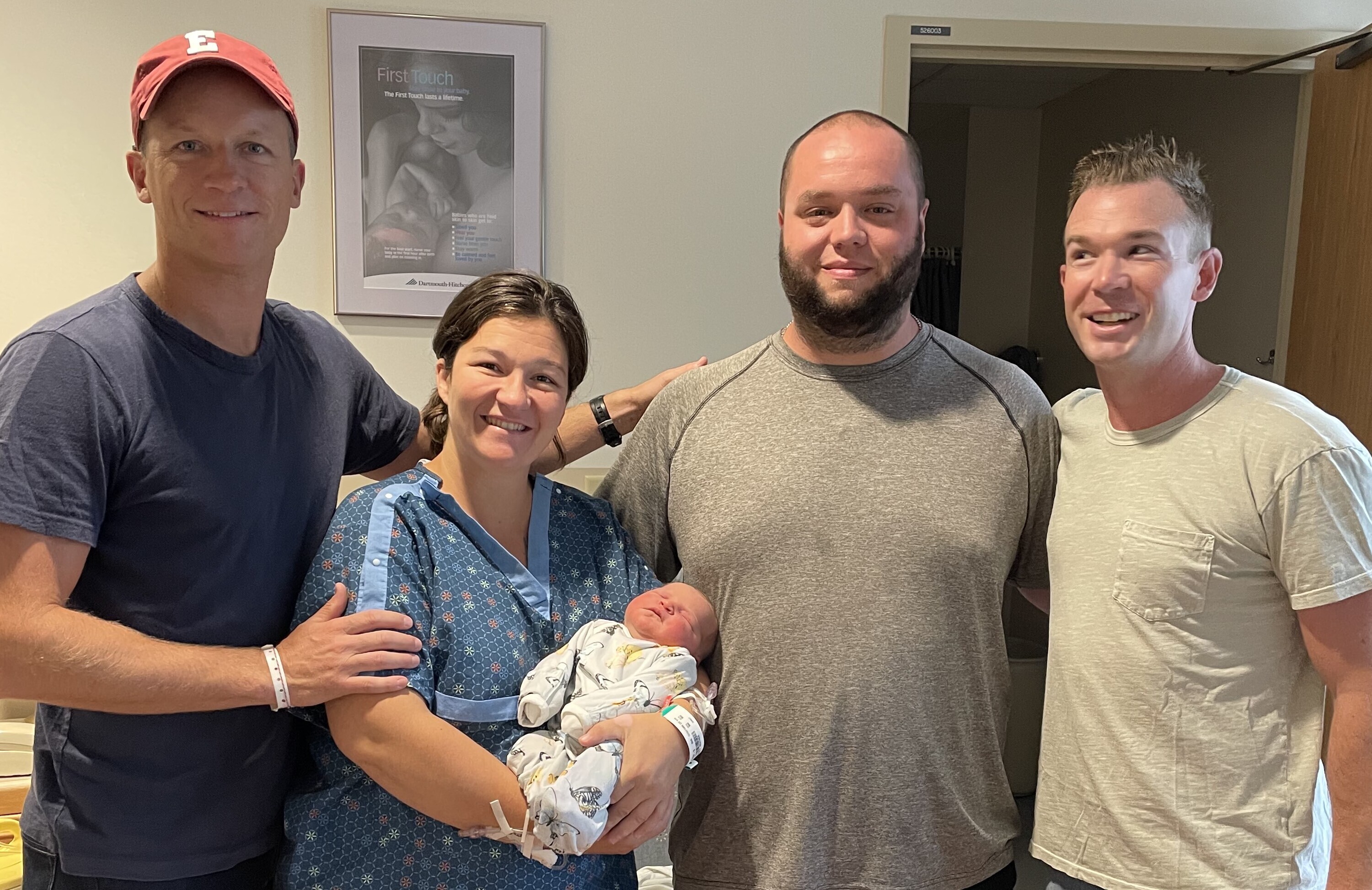8 Concerns Intended Parents May Have About Gestational Surrogacy

Creating a family through gestational surrogacy for families and individuals unable to start one themselves is exciting and joyous. But it also comes with its fair share of concerns. Here are eight concerns Intended Parents may have when considering gestational surrogacy.
1. Financial Costs
Starting a family is expensive, but the cost increases significantly with surrogacy. The financial cost of gestational surrogacy is often one of the most daunting aspects of the surrogacy process. It's not unusual for the overall expenses associated with the surrogacy journey to reach upwards of the six-figure range. Factors that will affect the cost include:
- Agency fees
- Surrogate expenses
- Attorney and legal fees
- Medical and insurance costs
- Travel costs
- Other related expenses
Working with an experienced surrogacy agency is invaluable when navigating the complexities of gestational surrogacy processes. A reputable surrogacy agency, also has access to invaluable resources, such as medical specialists and lawyers who specialize in surrogacy contracts. An agency can make the process much more manageable and reduce stress as they navigate this big decision.

2. Health Insurance
Intended Parents may have worries about obtaining the necessary health insurance for their surrogate. It's vital to ensure costs associated with the surrogate pregnancy are covered and surrogates are properly covered before any medical procedures begin.
Prenatal visits and delivery fees will be necessary during the pregnancy, so having adequate coverage for the surrogate is essential. Any out-of-pocket expenses, such as the medical screening, monitoring/medications, and embryo transfer, should also be considered when both parties negotiate the surrogate contract.
The surrogacy agreement should also include medical coverage provisions and specify who will be responsible for obtaining and paying for the insurance.This may also include the Intended Parents covering the premiums, deductibles and out-of-pocket expenses of the gestational surrogate's policy if necessary.
Regardless of how it’s handled, having the necessary health insurance in place will help make sure any resulting costs can be accounted for.
3. The Legal Process
The legal process of gestational surrogacy can be tricky and difficult to navigate without proper guidance, and fertility clinics require the agreement to be finalized before IVF begins.
The agreement between Intended Parents and their gestational surrogates is paramount to the surrogacy process as it creates a clear understanding of everyone's rights and responsibilities.
Vitally important is the attorneys' qualifications, as they should be well-experienced in drafting gestational surrogacy contracts, as managing the complex negotiating process and preparing a mutually beneficial agreement requires considerable knowledge. It’s also important to know what state(s) the attorneys are licensed to practice in, as it will be a factor for the surrogate based on her location. The Academy of Adoption and Assisted Reproduction Attorneys provides a nationwide database that can help you choose an attorney if needed.
While Vermont Surrogacy Network does not provide legal advice, and the attorney-client privilege does not protect communications with VSN, Kurt Hughes, co-founder of Vermont Surrogacy Network, is an attorney who has been involved in adoption and assisted fertility family-building for over two decades. He provides legal services through his law practice with Tarnelli & Hughes for hundreds of adoptions and assisted fertility arrangements such as gestational surrogacy, egg donation, and sperm donation contracts.

4. Surrogate Screening & Matching
The surrogate screening and intended parent matching phase is an integral step in the process. This phase is essential for carefully selecting candidates who are physically, mentally, and emotionally capable of meeting the demands of surrogacy.
Potential surrogates and Intended Parents need to complete their applications and be approved prior to viewing potential matches. Once these steps are completed, the matching phase can begin. The length of the process will vary for each surrogacy.
Creating successful gestational surrogate matches is a delicate process. A reputable agency will have the knowledge and experience to find the perfect match - someone who aligns with the intended parents' values and has the same goals in mind. The right match often creates a strong bond between all parties involved, leading to lifelong friendships.
A Vermont Surrogacy Network surrogate acknowledges the importance of the matching process:
It’s super important to take your time during the matching process. It’s okay not to pick your first potential match! It’s easy to get so excited in the beginning and just say yes! But it’s as important for you to match with the right intended parents as it is for them to find the right surrogate.
By taking the necessary steps, including proper surrogate screening and matching protocols before beginning a gestational surrogacy arrangement, Intended Parents can have peace of mind for their journey ahead.
5. Will the Baby Share Surrogate DNA
In gestational surrogacy, Intended Parents may worry their baby will have the surrogate's genetics. In gestational surrogacy, the baby doesn't share DNA with the gestational carrier because the egg used in the embryo creation process is from the intended mother or an egg donor rather than the surrogate.
All embryos, no matter how they're conceived, have the genetic material provided by the egg and the sperm used to create them. While the study of epigenetics does state that the environment can impact the way that the genes are expressed, there is no evidence that a surrogate's DNA will be transferred to the embryo being carried.

6. What Happens if IVF or Embryo Transfer Fails
There are no guarantees with in vitro fertilization, whether it’s a traditional pregnancy or a surrogate pregnancy. When IVF or embryo transfer fails, it can be an emotionally challenging experience for everyone. It can leave Intended Parents feeling frustrated, discouraged and hopeless. However, these feelings are normal.
Surrogate agreements should specify what happens in the case of a failed procedure and, if additional IVF cycles will be attempted, how many, and what the financial implications are.
It’s also important to understand that a loss can be devastating to all parties involved. Vermont Surrogacy Network can help connect surrogates and intended parents to professionals and other individuals who have similar experiences to ensure that everyone has a chance to process what happened.
7. The Relationship With Their Surrogate
Intended parents may worry about their relationship with their gestational surrogate for various reasons. They may worry the surrogate's feelings and expectations might change during the pregnancy or fear the surrogate may not respect their wishes. Intended Parents may also fear potential conflict between them and the surrogate if something unexpected occurs during the pregnancy or after birth.
A key factor in lessening these concerns is building a trusting relationship with a surrogate. Relationships between Intended Parents and surrogates are unique and take time, but they can become as special as other deep relationships.
Brianna K, shares the joy associated with having a strong relationship with IPs:
Having a great bond with the IPs that can last a lifetime is something truly special! I was fortunate to have this, and the IPs will now be our lifelong friends!
8. Talking to Loved Ones About Using Gestational Surrogacy
Intended Parents may feel apprehensive when it comes to the idea of discussing the usage of a gestational surrogate with family and friends. There may be concerns that their loved ones won't understand or accept their choice and may view surrogacy as an unorthodox way to create a family.
Though these worries are often very real, many intended parents find that once they’ve discussed the situation openly and honestly, those closest to them can show great understanding and support.
Start Your Surrogacy Journey With Confidence
If you’re an intended parent considering gestational surrogacy, it’s normal to have a lot of questions and concerns. At Vermont Surrogacy Network we’re here to guide Intended Parents through the journey and to have a positive experience.
If you’d like to learn more about how we can help you achieve your dreams of parenthood, please don’t hesitate to contact us. We look forward to helping you achieve your dreams of starting or growing your family!